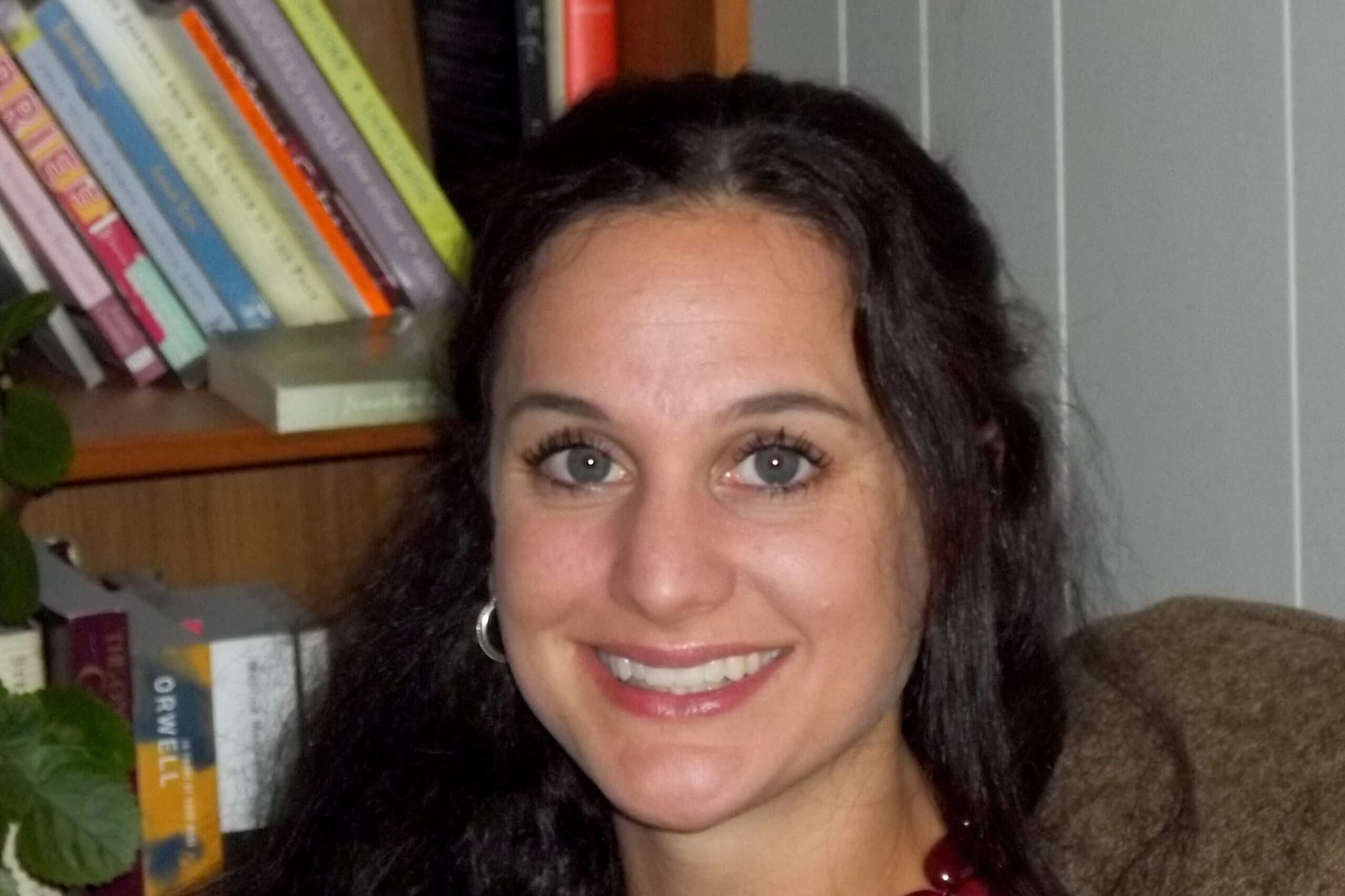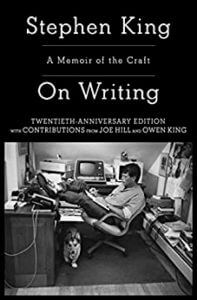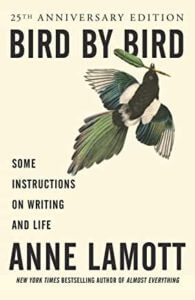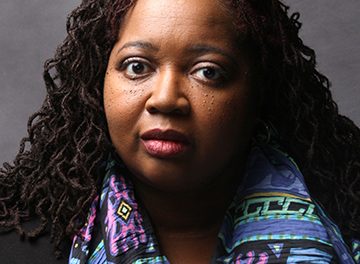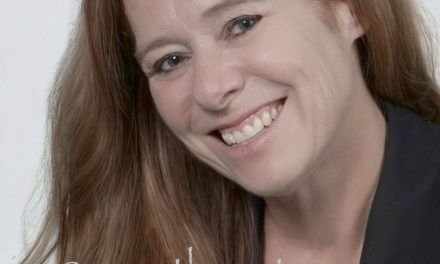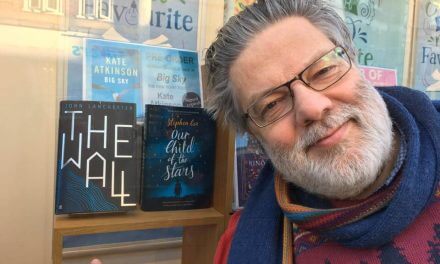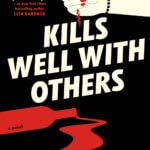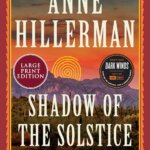Today, Gina Troisi joins me today to fill us in on her new memoir, The Angle of Flickering Light (Vine Leaves Press, 2021). Her work has appeared in numerous literary journals and anthologies, including Fourth Genre, The Gettysburg Review, Fugue, Under the Sun, Flyway: Journal of Writing & Environment, and elsewhere. Her stories and essays have been finalists in several national contests, including the 2020 Iron Horse Literary Review Trifecta Award in Fiction, the 2018 New Letters Publication Award in Fiction, American Literary Review’s Creative Nonfiction Contest, 2018, and others. She has taught classes and workshops in both traditional and nontraditional settings, including writing workshops for female adult survivors of sexual assault. She lives in coastal Maine.
SS: Welcome, Gina. Tell us what in your childhood contributed to you becoming a writer?
GT: My childhood was difficult in various ways, which are detailed in my memoir, The Angle of Flickering Light. I had an immense amount of fear and sadness that I didn’t know how to process, and writing was an essential creative outlet for me. I grew up feeling like I was unable to express my feelings, and I struggled with a sense of belonging. But my journals and notebooks were a safe, sacred place. In writing and crafting stories, I felt completely at home.
SS: Writing is undoubtedly a lonely occupation. John Green (The Fault in Our Stars) says writing is a profession for introverts who want to tell you a story but don’t want to make eye contact while doing it. P. D. James (Cover Her Face) says it’s essential for writers to enjoy their own company. Do you see yourself along those lines? Are you a natural loner?
GT: I wouldn’t say I am a natural loner, but I can easily spend days upon days by myself, especially if I’m engrossed in a project. And I do find being alone necessary, and quite therapeutic. I love people, and I can be very social, but I absolutely need time in between gatherings to recharge. I can also be shy about reading my work, and doing public events. I don’t feel comfortable being the center of attention.
SS: Do you have a day job? If so, is it a distraction, or does it add another element to your writing?
GT: I do have a day job. I work for an educational assessment company for K-12 students, and it is very much a 9 to 5. Of course I am incredibly grateful to be employed, to be able to work from home, and to have some incredible co-workers. But when it comes to my creative life, and what I want to be doing with my time, it is mostly a distraction.
SS: What are you working on at the moment?
GT: I am working on two novels-in-stories. One of the collections revolves around a particular restaurant in a small New Hampshire mill town. It explores economic and class issues, and consists of a cast of characters who thread a larger narrative about the way it’s possible to find and form surrogate families.
The other collection takes place in a coastal Massachusetts town, and is focused on the lives of a married couple who lose their only child in a tragic car accident just after he turns eighteen. It poses questions about parenthood and loss and perseverance, and it sifts through what ultimately sustains us during times when it seems that nothing will.
SS: It is often believed that almost all writers have had their hearts broken at some point in time, does that hold true for you?
GT: Yes, absolutely. In fact, so much of The Angle of Flickering Light is about heartbreak. It’s about hope, too, but there is a thread of heartbreak that is woven throughout the narrative. It began during childhood, and it continued through my adolescence and young adulthood in various ways. The book examines the narrator’s tendency to love men who do not have the capacity to love her back. But I don’t deny that heartbreak makes some of the best art; it’s such a prominent part of the human condition, so it’s only natural that it plays a role in our creations.
SS: How do you give back to the writing community?
GT: I love to support other authors. I am so grateful to have a solid, lovely community of writers in my life, and we try our best to help one another in various ways. I read Advance Review copies and write reviews, and I attend readings and events as often as possible. I have many writer friends with whom I exchange unpublished work, so I offer comments and feedback on other writers’ pieces. I share the success of other authors via social media whenever I can. And I buy many, many books!
SS: Me, too. I recently had to buy more bookshelves even though I started purging ones that I’d read and decided I didn’t want to keep in my permanent library. What part do your own fears play in your fiction?
GT: The theme of mortality often creeps into my fiction, as well as loss and abandonment. I have always had a great fear of being conventional, of not finding my own voice, or living a life devoid of meaning, and that tends to show up in my fiction as well.
SS: Do you think that self-revelation is part of the writing process?
GT: Absolutely, and I think this is especially true when it comes to memoir. We need to reach a certain level of self-awareness in order to write memoir, or at least be willing to dig deeply, and to investigate our choices and decisions—the moments that have made up our lives.
SS: Are you looking to entertain or illuminate?
GT: I am looking to do both. I certainly want to keep readers turning the page, but I also strive to shine light on moments, circumstances, relationships that might not always be given enough contemplation. I want to provoke people to think—about class issues, and addiction, and about how people unintentionally end up in situations they have a difficult time getting out of. I am fascinated with the idea of the underdog. Mainly, I aim to create characters that readers will empathize with.
My favorite books are those where I lose myself in a character— especially a character whose life experience has been different from my own. Those are the books that stay with me, that not only make me turn the page, but that illuminate what I might have otherwise overlooked. I hope to do this for readers as well.
SS: Khaled Hosseini (The Kite Runner) feels he discovers a story rather than creates it. Are you a plotter? Or do let the novel develop organically?
GT: I have actually never plotted anything—not a story, or an essay, or a book. I am one hundred percent a discoverer. The only way I am able to figure out where a piece is headed is by actually going through the process of writing it, which can sometimes take longer than I’d like. In the past, I’ve worried that this might be inefficient, but I have come to terms with the fact that it’s important for writers to know and accept our individual processes, and this is the process that works for me. I’m not sure I could do it any other way. I suspect that if I did plot something out, it would still change drastically as I wrote and discovered the heart of the story.
SS:: I’m also not a plotter. Once all that work it done, it feels like the book has been written and it’s not fun anymore. According to F. Scott Fitzgerald (The Great Gatsby), a novel is never really finished but only abandoned. How does this apply to your own work?
GT: I agree with this wholeheartedly, whether we’re talking about a book-length work, or even a short story or essay or poem. I am a huge believer in revision, and I work incredibly hard to get a piece to a place where I am ready to let it go. But the reality is that we could infinitely alter and reshape our work for our entire lives.
Deciding on an end point for memoir feels particularly tricky because our lives continue on. Our views and perceptions and even our memories change.
SS: What are you currently reading?
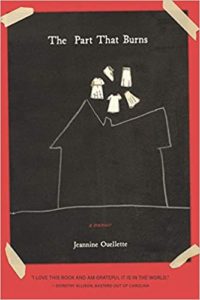
SS: What is your most recent book? In twenty-five words or less, tell me why your book should be a reader should start your book next.
GT: My debut memoir, The Angle of Flickering Light, is about girlhood and recklessness and the search for belonging. It offers glimmers of hope and light within darkness, and it inspires perseverance.
SS: Are there any books on writing you find particularly useful and would recommend? (Please include links where you can)
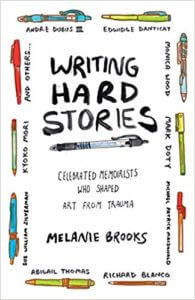
Bird by Bird by Anne Lamott
Writing Down the Bones by Natalie Goldberg
Writing Hard Stories, by Melanie Brooks
SS: What are common traps for new authors?
GT: Perfect conditions:
SS: I agree. If you wait for perfect conditions to write (or to have a child) that will never happen.
********************
The Angle of Flickering Light is available from:
Amazon | Bookshop.org | B&N | Author Website
********************
An excerpt from The Angle of Flickering Light:
Indulgence
I’d been back in New Hampshire for over a month when John decided to quit heroin again. He’d been trying to quit all summer while I was in California, but he’d been unsuccessful. He told me he had not been able to find a fix, so he interpreted this as yet another sign. It was an exceptionally hot day for early October.
While I was away, John had finally moved out of his ex-girlfriend’s place. Since his belongings were at Jacob’s grandparents’ house, and mine were in the cab of my truck, we bounced from one apartment to the next, crashing on friends’ living room floors. That week, our friend, Marie, offered us her vacant apartment. She had moved across town, but her name was still on the lease for a while more days. While you find a place, she said.
The entire house was divided into four apartments. Marie’s was on the far left, and the driveway was behind the house. Inside, we brought a hiking backpack filled with necessities: clothes, toiletries, a boombox, cigarettes, and a trashbag. The apartment had two floors, but we congregated on the first, using only the bathroom, one bedroom, the living room, and the kitchen that separated them. We claimed the bedroom in the back corner of the apartment, the room with the only shaded window.
The walls were white. The tile floors had been scrubbed clean with bleach. No furniture remained. In order to be filled with spirit, feng shui theory says one needs to be empty of worldly things. The color white, I remembered, is associated with pu city. White is letting go. Surrendering.
I had hope.
We stocked the refrigerator shelves with tomato sauce and cheap champagne. We spread my insulated sleeping bag on the floor of the bedroom. While Jacob was at school, we made love on top of the sleeping bag. The boombox played Pearl Jam’s song “Indifference”, the music soft and slow. I was on top of John, my knees pressed against the carpet. The twine chafed my skin. A portable fan hummed as my flesh peeled, but I didn’t mind the burning. My body fit dislike when I lay on the bean, and warm sand filled the folds of my skin. He swam inside me while I climaxed. Orgasm was the single consistency of our relationship. Sex was the way we finished one another’s sentences.
Afterward, John filled the ashtray with cigarettes while I filled my journal with words. Still naked, I sat up against the wall and began to shape a poem. He tucked his feet in between my crossed legs. Damp with sweat, I was content in this empty space. We had a place to sleep tonight, and perhaps John would have enough determination to beat his demon. Our conversation would percolate throughout the rooms. He would tell me about his fear, about feeling worthless when he wasn’t high, and I would tell him about mine.
“Are you hungry?” he asked.
********************
This post contains Amazon Affiliate links. As an Amazon Associate, I earn a small amount from qualifying purchases.
The books Gina mentions above are also available through bookshop.org:
On Writing https://bookshop.org/books/on-writing-a-memoir-of-the-craft-9781982159375/9781982159375
Bird by Bird by Anne Lamott: https://bookshop.org/books/bird-by-bird-some-instructions-on-writing-and-life/9780385480017
Writing Down the Bones by Natalie Goldberg: https://bookshop.org/books/writing-down-the-bones-freeing-the-writer-within/9781611803082
Writing Hard Stories, by Melanie Brooks: https://bookshop.org/books/writing-hard-stories-celebrated-memoirists-who-shaped-art-from-trauma/9780807078815
